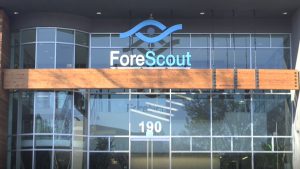Headquartered in San Jose, California, Forescout Technology is a leader in delivering device visibility and control to enterprises and government agencies, enabling them to gain awareness of traditional and IoT devices. Founded in 2000, the company has raised a total of $124 million in funding over ten rounds, giving it a market valuation of $1.56 billion by the end of 2019.
Whispers of a potential sale began to emerge in November 2019 before Advent International, one of the largest and most experienced global private equity firms, announced its plans to acquire the company in February of this year. The deal would have seen Advent pay $33 a share for ForeScout, valuing the company at about $1.9 billion.
However, with the economy reeling from the COVID-19 pandemic many deals have collapsed. Bloomberg reported that across one seven-day period in May, over $10 billion of mergers, investments and acquisitions were terminated.
On May 15, Advent notified Forescout that it would not complete the acquisition as scheduled on May 18. The Boston-based private equity firm stated its decision to back out was because a "material adverse effect" had occurred at Forescout.
"We have satisfied all conditions to closing under our merger agreement, and a material adverse effect has not occurred," said Theresia Gouw, Chair of the Forescout Board. "The only change since the merger agreement was jointly executed in February is the deepening of the COVID-19 pandemic, which has significantly impacted global macroeconomic conditions... It is highly disappointing that Advent would attempt to exploit market volatility to renege on its contractual obligations, particularly when the merger agreement explicitly excludes the effects of a pandemic as a material adverse event."
Now, Forescout is suing Advent to hold the private equity firm to its $1.9 billion agreement. In a complaint filed with the Delaware Court of Chancery, Forescout argues that no "material adverse effect" has transpired and that all closing conditions have been satisfied, which makes Advent obligated to close the transaction.
Advent has responded by saying it was in discussions with Forescout about "an alternative transaction" when the lawsuit was filed.
"We are disappointed the company has now chosen to pursue litigation," the company stated. "Advent is prepared to respond and will vigorously defend its position in court."
Forescout's stock is down $2.08 to $18.85 per share, giving the company a valuation of $1.03 billion. This is $870 million less than what Advent agreed to pay for the acquisition.
In the midst of this, platform security vendor Fortinet is now suing Forescout for violating three patents associated with the Bradford Networks network access control (NAC) technology that Fortinet acquired in 2018.
The company claims that Forescout's CounterACT NAC software violates patents held by Fortinet. In the complaint, the company outlines it attempted to start a conversation about licensing with Forescount in February, but Forescout refused to have internal business employees discuss such matters.
"Despite its knowledge of Fortinet's patent portfolio and asserted patents, Forescout continues to sell the accused protects and services in complete and reckless disregard of Fortinet's patent rights," Fortinet wrote in the complaint.
























